|
Ethiopian Prime Minister Abiy Ahmed won the Nobel Peace Prize today. This was mostly because of his success in reaching a peace agreement with Eritrea in his first 6 months of office. But he has also called for democratic elections in May, released political prisoners and welcomed home exiles. The result? Few are happy. The change is too fast for the old guard. Not fast enough for the youth whose protests brought him to power. I agree with Amnesty International, and hope this award will push him and the country to address human rights issues and ethnic tensions that threaten stability. Click on the allAfrica button for more information.
0 Comments
Walking about the neighborhood behind our hotel is a great opportunity to see the real Ethiopia. I especially enjoy seeing the children going to school in the morning. I wanted to take a picture of the school, and one of these kids was standing right in front of the sign. We were warned never to take pictures of people without asking permission. In Ethiopia, when you ask if you can take someone's photo you usually get a very enthusiastic yes or an emphatic no. Kids are usually much more eager to have their photo taken, which explains the results of this picture. We found it! We were wondering how we would ever find the American Corner in Bahir Dar. It's hard for us to get around and find anything, and here it is in our neighborhood. The American Corner is a resource center, often set up in partnership with a library as it is in Bahir Dar. English language books and audio-visual materials, college information and other items are available in most corners. Fortunately, near the school pictured above. For more information on Bahir Dar's Corner, go to https://et.usembassy.gov/education-culture/american-spaces/bahir-dar-american-corner/ Street Food Food is a favorite past time of mine. Street food is delicious and fun. If its hot and fresh, its probably fine. I have seen roadside “donut” stands like this in several countries. The patrons gave them ringing endorsements. I usually resist because I know a deep fried anything is inherently unhealthy (although that has not kept me from eating the deep fried fish and chips here). We’ll see how long I can resist these temptations. The Community There are more mosques in this community and in Ethiopia than I expected. Especially since the official statistics put Muslims at less than 10 percent of the population. Some claim it is more like half the population. We saw several mosques on our walk. This one really stood out for the height of its minaret and red color. There are also many Ethiopian Orthodox churches. I will post some photos of them later. We started a morning walk routine last week. I have been too ill to keep it up over the weekend, but hopefully I can start back up tomorrow. Just past this hospital we walked by what I thought was piles of rubble that you see below, opposite the bus. We were startled to hear someone's chants or prayers come out of the rubble as we walked by the first time. On our way back they had gotten up and come out of their "house". It's my guess they have come for treatment, or they may be staying there while a family member or friend is in the hospital. Finding a place to live can be a challenge anywhere. There are a lot of things to consider, especially when you are abroad and don't know much about the community or people. My three colleagues and I looked for days for a place. We had some help from the program. The only houses we found were far from the campus and town. Without a car, contacts or knowledge of the community these places were not feasible. We found a place on campus, but it would have been a long walk from shops and restaurants. Local faculty warned us the neighborhood was not safe. We never saw an apartment of any kind.
We were told by our colleague who was in Gondar last year that he resorted to a hotel there. We spent much of Friday and our entire Saturday looking at those options. Many were too expensive. Most seemed very impersonal. The little Fila Hotel close to Lake Tana has proved to be our best choice to live for now. The people are welcoming like family. They have been very helpful. The WIFI is relatively good. Almost every blog post since Addis Ababa has been made from the Fila. The space is basic, except the view, which you can see from my balcony photo. The breakfast included is delicious. Best of all is the lake view and breeze are in a relatively secure area but for the mosquitos. Lake Tana is the source for the Blue Nile, the main tributary of the historic Nile River, the longest river in Africa. The falls are one of the main sites to see near Bahir Dar. We arrived at the end of the rainy season, so they were at their best. You drive through farms and villages on what I would call a rough road. There is a lot to see and enjoy on the way. Best of all, it's a good hike up to the falls on a trail the locals use for commerce, and to try to sell you everything from trinkets to help with pictures. Kids beg for pens "for school." Adults ask for money for school or just in general. A musician plays a traditional instrument at the end of the trail. That I paid for. I don't enjoy the touts, but nobody does. We were warned they will walk along and try to help you over parts of the trail, then demand payment in the end. I did let a guy take a few pictures. He was unhappy about his tip at the end. This is the part of traveling I don't enjoy. I know people need the money, but I prefer to give in more systematic ways to try to make more of an impact. My colleagues Hilarie, Jill and Merouane were joined by Johannes, a student in Merouane's Department, and an official guide. It may have been a bit of a challenge for some, but worth it for all. The churning river foreshadows the political/legal controversy downstream. Water rights are always a potential for conflict. Even more so in a future with climate change creating more uncertainty in weather and the possibility of crop failures, not to mention sufficient drinking water for a growing population. Although this controversy has been covered well globally in sources like Al Jazeera, and of course locally, I doubt much of the Western World is in tune to it.
The Blue Nile provides over half of the water in the Nile, Egypt's water supply, as well as a source for Sudan. So Ethiopia's nearly finished hydroelectric dam on the Sudan border has caused a source of dispute between the countries. The dam can make Ethiopia an energy exporter in the next couple of years. But Egypt is concerned it will pay for this with insufficient water for its needs. For more information FanaBC's story from October 8, 2019: Ethiopia Says Egypt’s New Proposal On GERD Crossed Red Line The map above helps provide some helpful context. You can find it here. I am finding there are other conflicts on the Blue Nile here, including industry pollution. Hopefully there will be a project created around this. Thirty-seven islands are scattered around the 3,000 square kilometer Lake Tana. One of the closest to Bahir Dar is Ras Abay, about a 5 kilometer/3 mile boat ride. We were told only monks or priests can live on the island, which is near the headwaters of the Blue Nile, which we also visited this day.
The island is home to the Debre Maryam. Locals claimed the monastery is 900 years old. Reliable sources say it is not possible to substantiate even a 13th century origin. The roof and solar panel are obvious modernizations. It is apparently one of the few islands and monasteries that women are allowed to visit. Church bells. Monasteries like the Debre Maryam have interesting artifacts surrounding them. The Ethiopian Orthodox Tewahedo Church uses stone chimes, also called lithophones, as single bells (dowel) as well as in sets of chimes. Our student guide rang this lithophone for us to demonstrate its purposes. On one end the chime is a call to prayer. On another end a warning sound. https://www.britannica.com/art/stone-chimes  This is the typical construction of the buildings in the area, especially on the island we visited. This is the entrance of the museum you see pictured below, though we were not allowed to go into it, just like the monastery pictured earlier. You can see how thick the walls are in this photo. This is common, though the weather this time of year is very moderate.  The islands museum housed a variety of artifacts. The books are ancient bibles, written in the Ge'ez language. This is the language of the Ethiopian Church, but not the people. The common language of the people is Amharic. Students take English in grade school, and are only able to continue in high school if they pass a test and are proficient enough in English to study their subjects in English full time. So Ge'ez is a little like Latin was in the Catholic Church before Vatican II reformed the mass to celebrate it in the native language of the congregation. As we shoved off from the Bahir Dar dock I wondered if our boat had inspired the Disneyland creators of the Jungle Boat Cruise. It looked alike enough and old enough. But our first, and most pleasant surprise, did not come from Disney's script. It was a flock of Pelicans. A man in a traditional boat kept their interest long enough for the occasional tourist to come by and pay him for the opportunity to feed them. The opportunity to see these curious birds eat up close and feed them was worth the extra 100 Birr (about $3.33) for this unusual tourist trap.
Later we visited the headwaters of the Blue Nile (pictured and tagged). There we saw hippos (not pictured). The only hippo I saw on land was bloated after being shot a few days earlier because it posed a "threat" to the people. It was our first day off since arriving in Ethiopia over a week ago. We had little downtime or chance for quiet, if there is such a thing, in an Ethiopia city as quiet. Programs like this always require official greetings. Our initial orientation took place at the American Embassy in Addis Ababa. On the initial day, September 30, we were not allowed to take our cell phones into the large compound. The next day, after a security clearance, we were allowed to keep our cell phones. A colleague took a photo of me and another Scholar after we passed through security. A guard immediately took his phone and deleted it.
U.S. Ambassador Michael Raynor and his spouse Kathleen hosted us in the evening on October 1. He was first appointed by President Obama in 2012 to Benin. Delicious appetizers, an open bar and some interesting guests were a welcome change of pace during our hectic first few days. Ambassador Raynor spoke of the importance of Ethiopia and its upcoming elections and agreed to come to Bahir Dar for a program during my tenure there. We arrived in Bahir Dar October 3 to a welcome lunch put on by the University. The President, other administrators and representatives from most of our schools joined us to start the conversation on what we can try to accomplish this year. I am very impressed by what the law school is doing and its vision for the future. It wants to internationalize, including its journal. It has legal aid centers across town and in an outlying area. It does public education on radio. There are interesting LLM degrees in Human Rights and other specialities. See what it is doing now at: bdu.edu.et/law I woke up to this from my western style hotel up against the reality of Addis Ababa. I have no pictures of the U.S. Embassy or our meetings. No cameras, laptops, backpacks. I forgot to take an old fashioned pen in with me. We went to see the Ethiopian National Museum after the meetings. Ethiopian is understandably proud to be the cradle of humankind. I like Ethiopia's name for the Beatle's song inspired Lucy much better: Dinkinesh, which means "you are marvelous". Lucy in the Sky with DiamondsWe had a delicious lunch at the Lucy themed restaurant next door to the museum. My fellow ADSP colleagues are accomplished U.S. Professors in a variety of fields. They are originally from a diverse group of African countries, including Nigeria, Cameroon, Zimbabwe, Algeria and of course Ethiopia. I am sure I am the only one at this table who only speaks one language. They are passionate about Africa, its politics and its many problems. CommerceTransportationThe guy below has the job of cramning as many people into a van as possible to maximize profits and move people as quickly as possible. He startled me, because I had been warned by the program that someone might snatch my phone/camera if I am not careful. He laughed when I withdrew, but he was just having a little fun. Transportation is different in every country. In Ethiopia, the people politely wait in long lines to cram into these vans and busses to save a little money over a private tuck tuck. The more modern train, donated by China, was probably too expensive or did not go where these people live. An ancient form of transportation is still common here. This girl saw me taking a picture of the boys below and walked up to ask me to take her picture. These boys are everywhere, asking passersby to pay them a few Birr to be weighed on the scale you see in their hands. I declined, but they seemed thrilled to have their picture taken instead. Commerce takes all forms, especially when unemployment and underemployment are so high.
Feel free to weigh in on this and other posts. These are some of the favorite places my students and I visited in and around Taunggyi, Myanmar before they reluctantly went home in time for the 4th of July Holiday. Inle Lake got it's own post, but it makes this album as well because it is so beautiful. The large Pagoda between the town and law school was easily walkable from the Royal Star Hotel, so we visited it often. We hired a car to take us to many of the pagodas in the mountains ringing the city. When we first arrived at the Taunggy Law School, Myanmar we could tell there would be many differences. Motorbikes replace cars, chalk boards replace projectors and open air classrooms replace climate-controlled environments. Missouri Western State University students Britane Hubbard and Kaylee Sharp came to Myanmar to teach Clinical Legal Education English to peers for the NGO BABSEACLE. The classes were all voluntary, scheduled around required courses and were sometimes attended by students from other disciplines. As usual, the teachers learned as much or more than their students. Cultural exchanges and friendships were created. The time just went by too quickly.
On our first visit to Inle Lake it was not obvious to use that it is an ecosystem in trouble. It is one of the most beautiful places I have been. You feel like you have stepped back in time, but for the plastic containers and diesel boat engines. Agriculture and tourism are putting a strain on the ecosystem. Pesticides may make the water and fish unfit for consumption, but many of the people, like us on that first visit, may not be aware of the problems below the surface. I love to experience a culture through travel and food. Taking a 12 hour night bus for locals, not tourists, is a good introduction to another culture. If you can't make it to Myanmar to do this, check out Anthony Bourdain’s Parts Unknown: Season 1: Episode 1 Myanmar, Apr. 14, 2013 on Cable News Network (CNN). It will give you an interesting look at Myanmar shortly after the military started to open up the country to outside visitors. https://www.cnn.com/videos/bestoftv/2013/04/15/ab-anthony-bourdain-episode-1-entire.cnn (last visited Jan. 19, 2019).
In the summer of 2018 I went to Myanmar to work as an International Clinician in Residence for BABSEACLE at Yangon University. I brought two students from Missouri Western to serve as peer teachers of clinical English to the students there, Britane Hubbard and Kaylee Sharp. Steve Rosenbaum, country director for BABSEACLE in Myanmar, met us at the airport and took us to lunch here, at General Aung San's former house and office. He and staff members like Y, Linn and Pwint helped put us at ease. Maybe we can do this project.
We were just beginning to learn about Myanmar and it's history. General Aung San's assassination turned then Burma's fate from democracy to years of military rule according to many. Over half a century later Myanmar still struggles toward democracy. |
Archives
March 2023
|
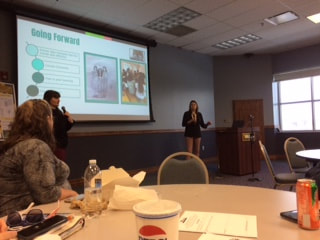
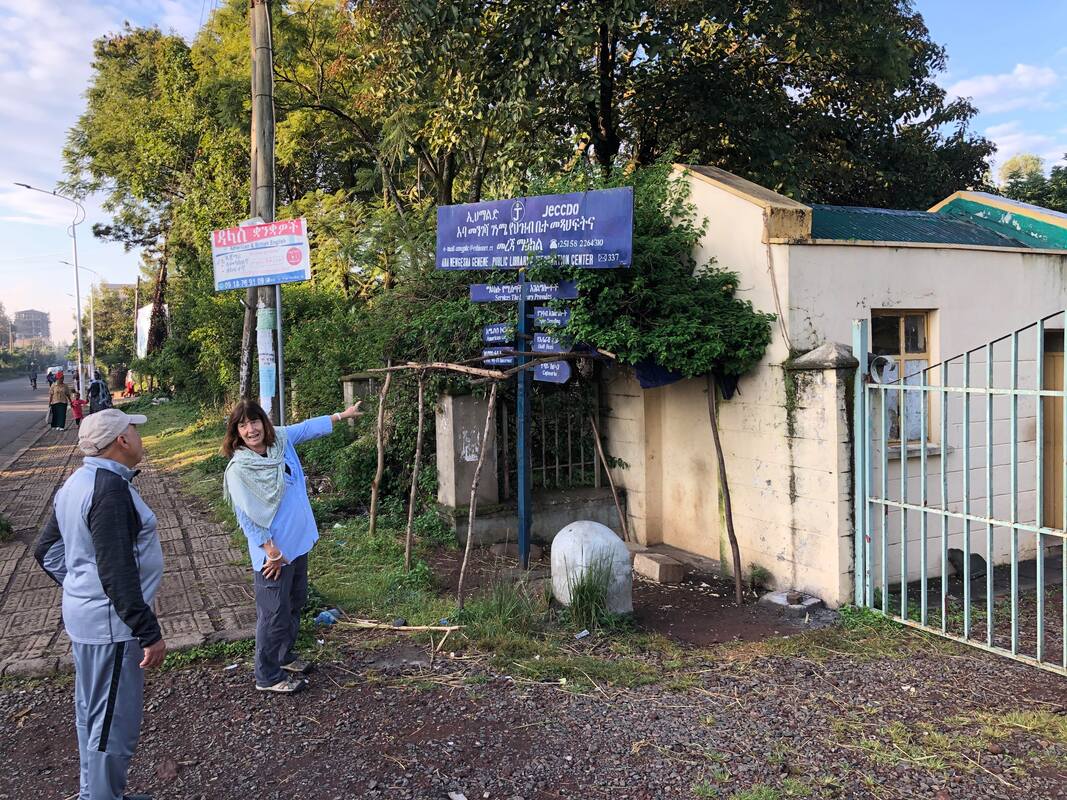


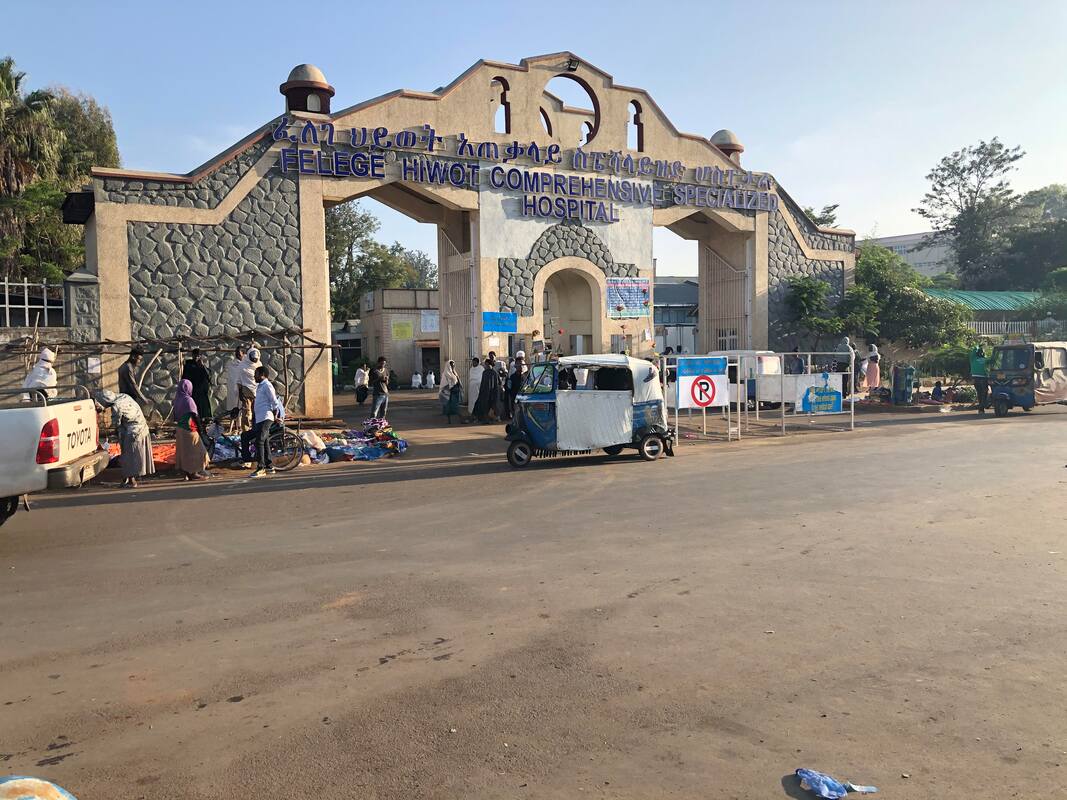
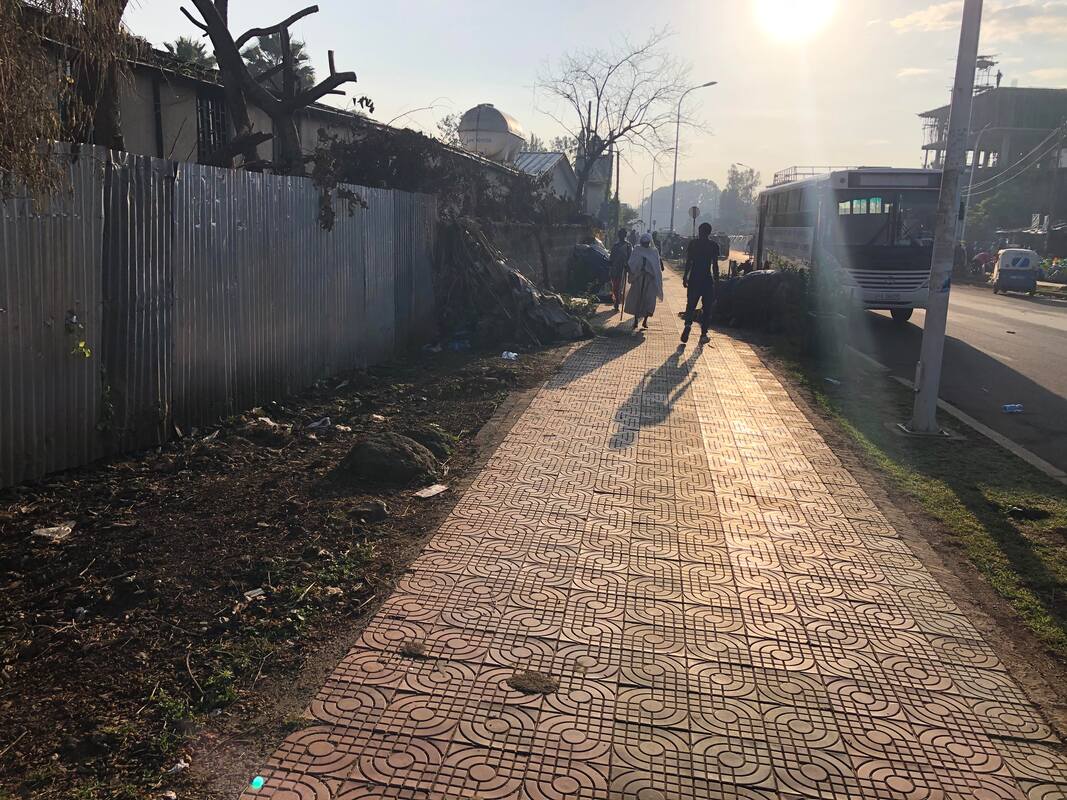
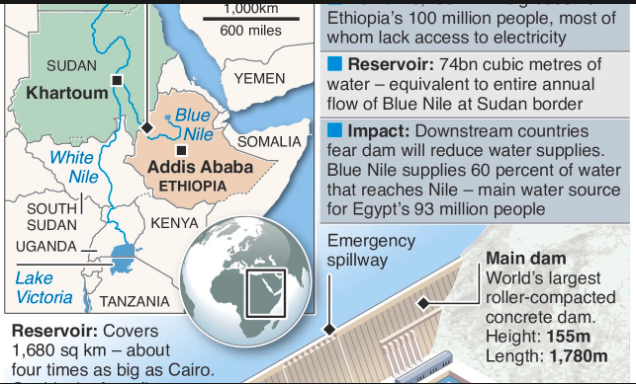
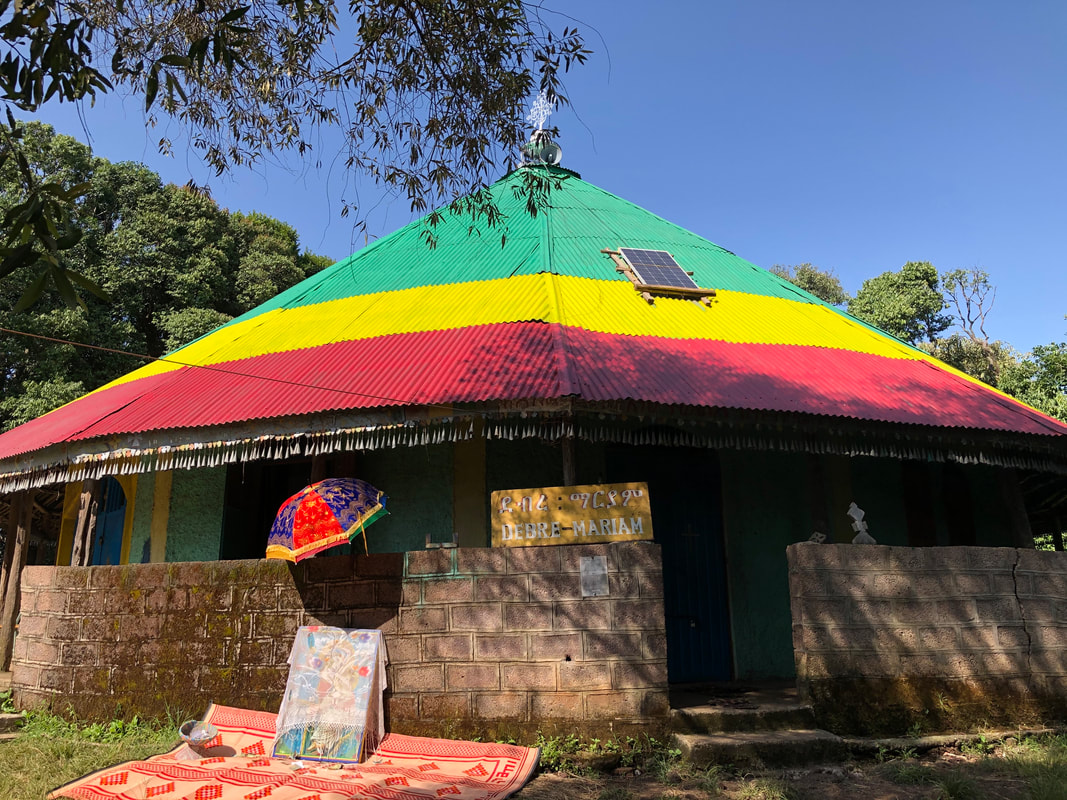

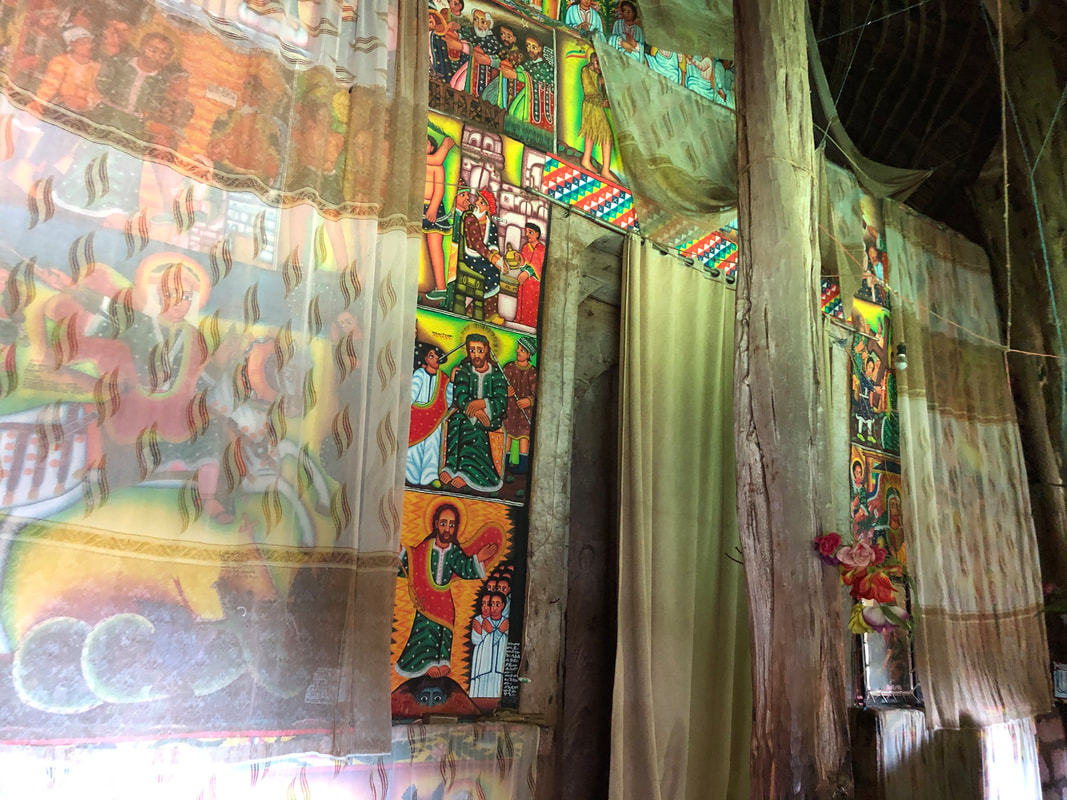
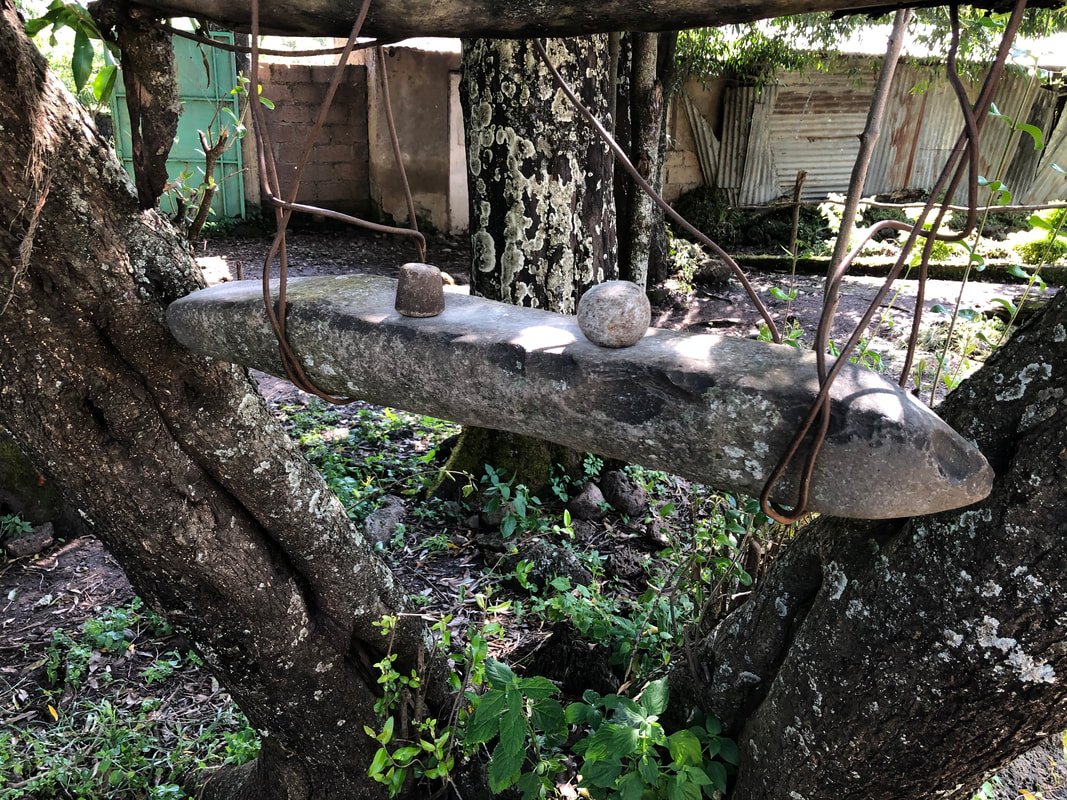
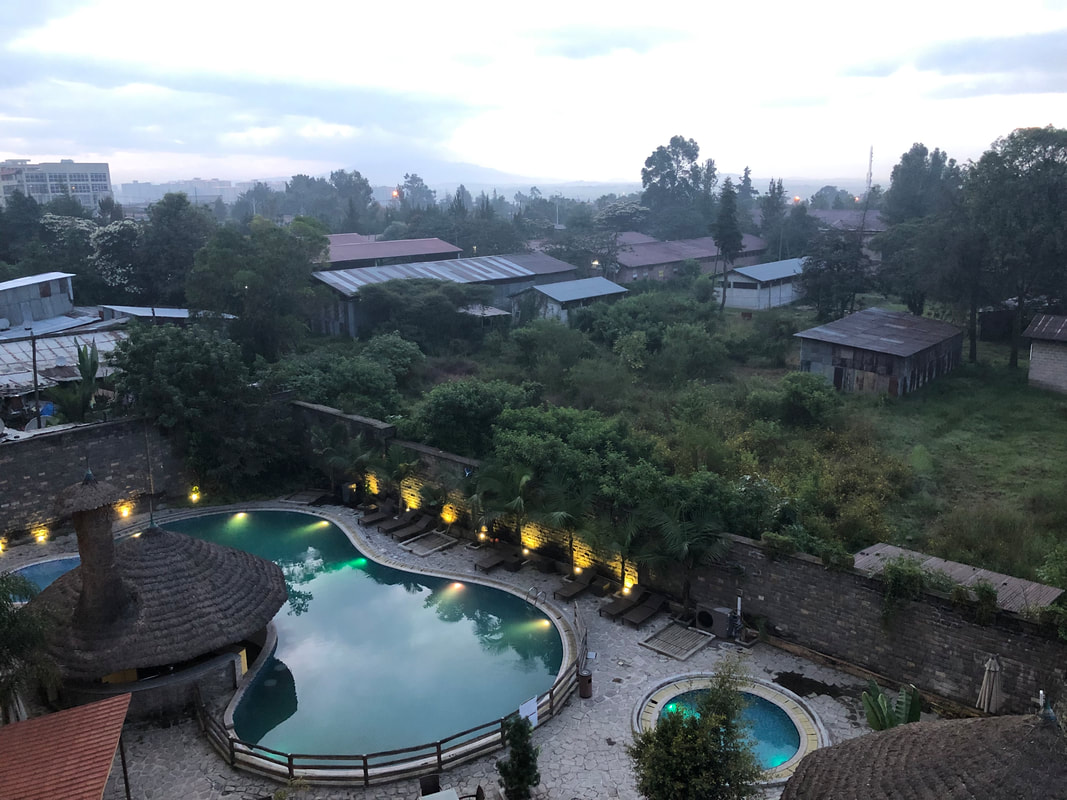
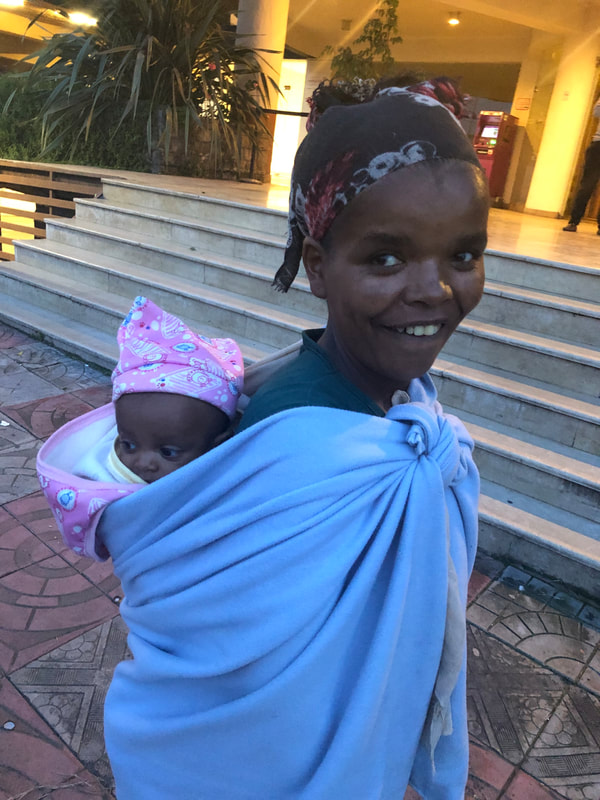
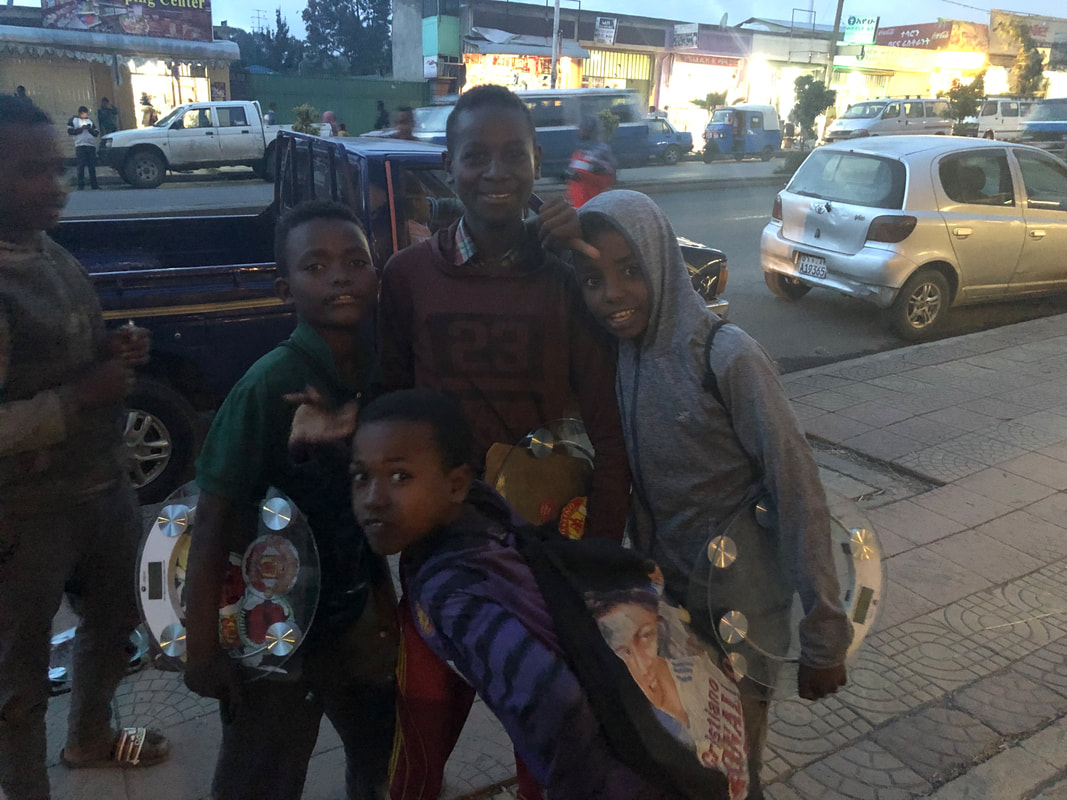
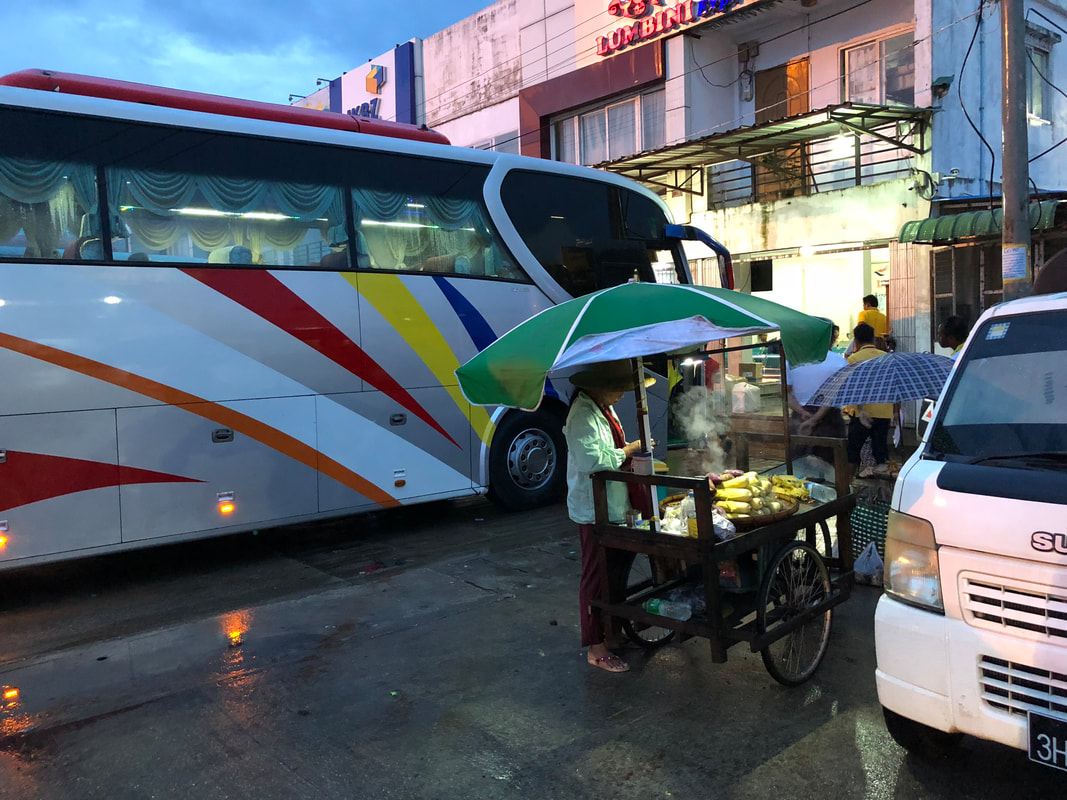
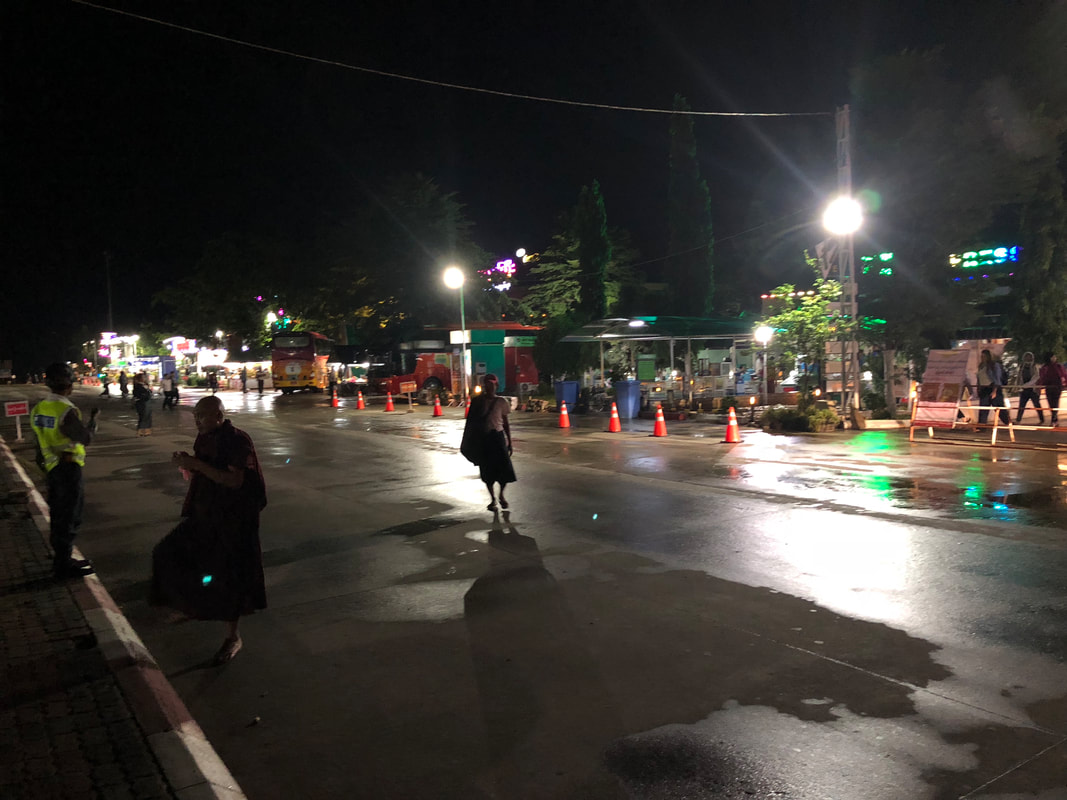
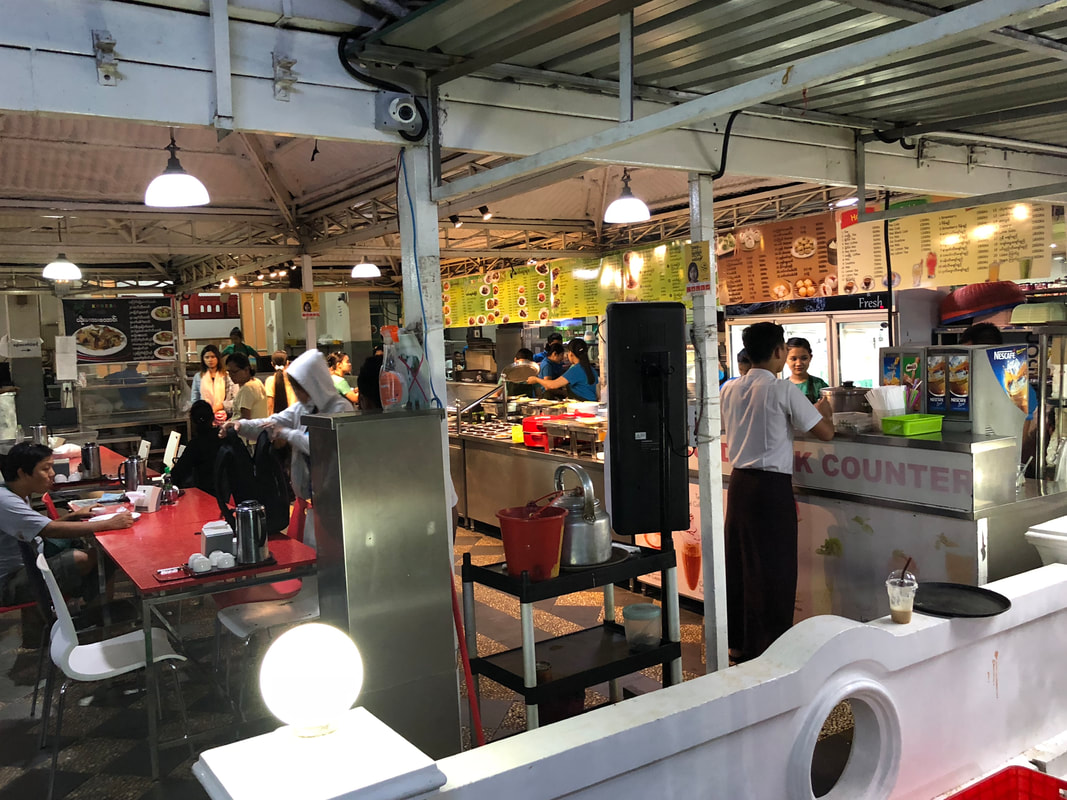
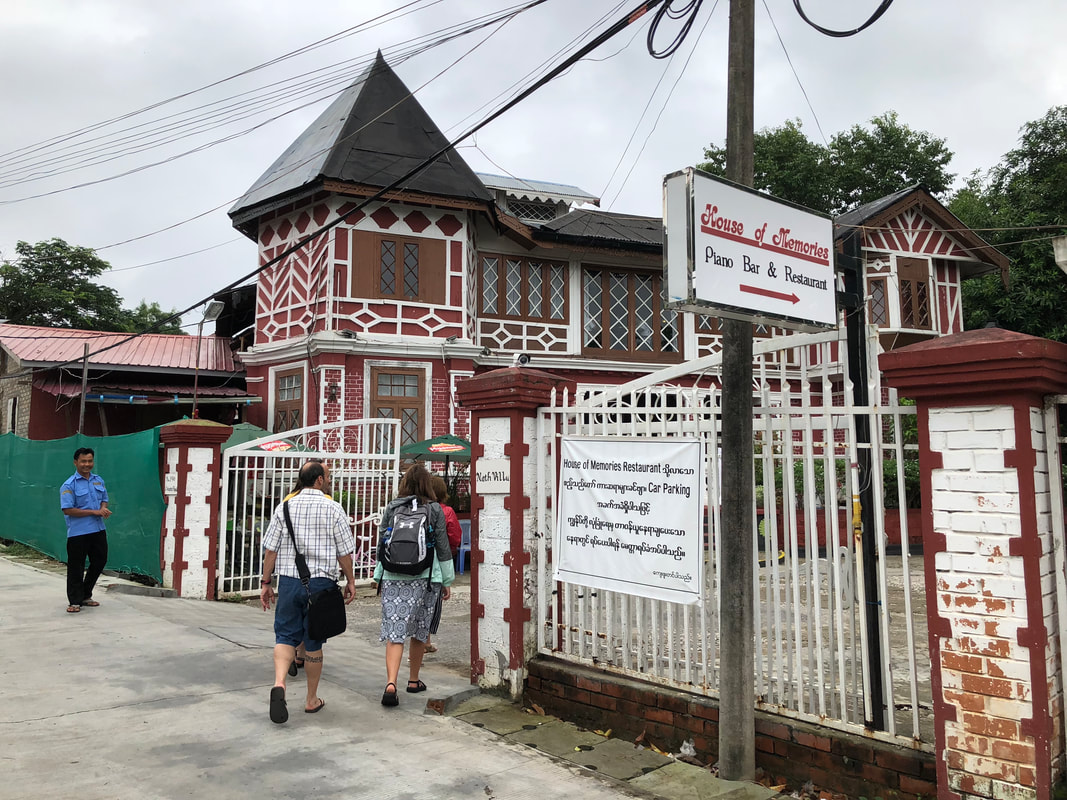
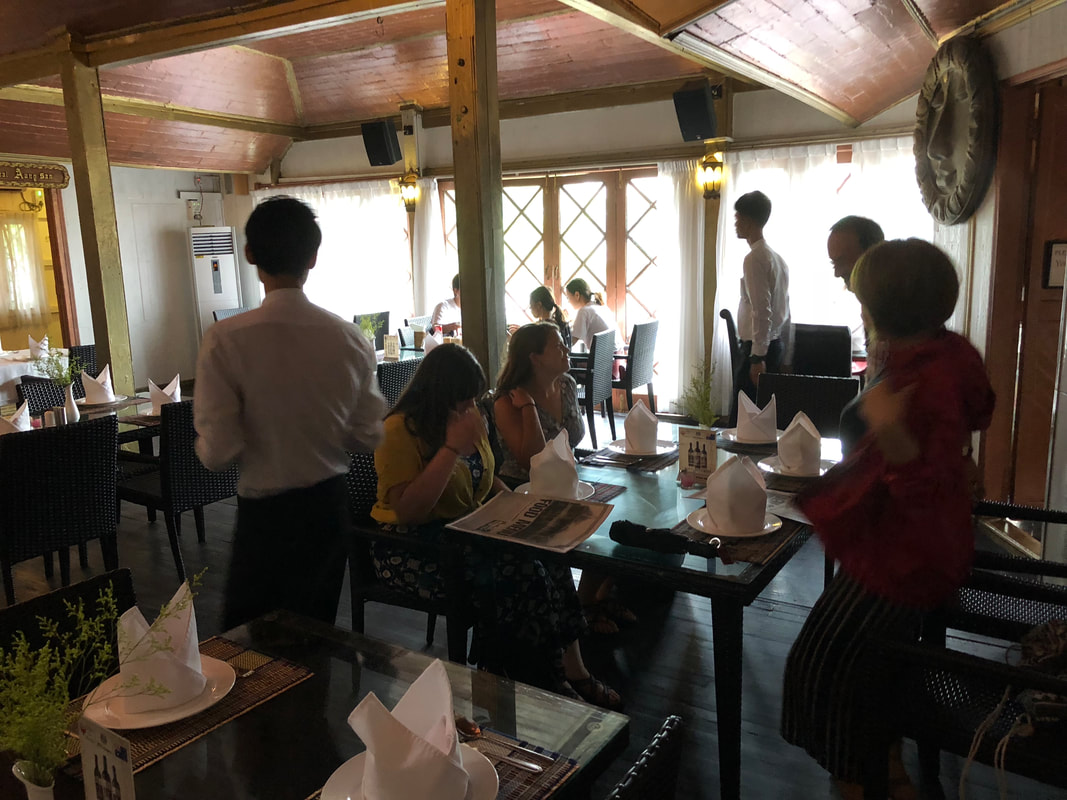
 RSS Feed
RSS Feed